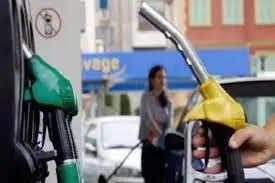- Oil & Lubes
- 2 min read
Move to E20 fuel will hike automobile prices marginally
Shamsher Dewan, senior VP and group head, ICRA said, “No major design changes are required from a vehicle standpoint except material recalibration, and the impact on the vehicle cost is expected to be less than 1% in the case of passenger vehicles and about 2%-3% in the case of two-wheelers.

The government’s decision to move to 20% ethanol blended E20 fuel by 2025 will not cause sharp price hikes in the auto industry.
According to a latest report by ICRA, cars and SUVs will see around 1% increase while two-wheelers will see around 2%-3% markup.
However, the E20 move could affect fuel efficiency of vehicles for which companies may have to invest in light-weighting and other solutions.
Shamsher Dewan, senior VP and group head, ICRA said, “No major design changes are required from a vehicle standpoint except material recalibration, and the impact on the vehicle cost is expected to be less than 1% in the case of passenger vehicles and about 2%-3% in the case of two-wheelers. While no major capex is envisaged, loss of fuel efficiency is expected as vehicles transition from the E10 to E20 compliant design, and this would increase the total cost of ownership. However, OEMs are looking at technological improvements like light-weighting to offset the impact. Operating E10-compliant vehicles with E20 fuel would result in corrosion of certain engine components, and there would be requirements to replace the corroded parts during the vehicle lifecycle,” he added.
The adoption of alternative fuel technology will meanwhile shoot up. “The proportion of CNG, EVs, and hybrid vehicles will increase to 20%-30% of new vehicle sales in the next five years though petrol-based vehicles will likely account for a significant portion of new PV sales ,” said Dewan.
Ethanol blending would reduce vehicular emissions, strengthen energy security, help reduce oil imports and conserve forex reserves. Besides, other benefits include controlling excess sugar supply in the country, as around 65% of total ethanol production comes from molasses-based distilleries.
Ethanol blending in petrol has been gradually increasing in the last several years, and India achieved 10% ethanol blending in 2022.
Further, the Government of India has advanced its target for E20 implementation to 2025 from 2030 earlier. Currently ethanol production is concentrated in states such as Uttar Pradesh, Karnataka, and Maharashtra, owing to feedstock availability.
Also Read:




COMMENTS
All Comments
By commenting, you agree to the Prohibited Content Policy
PostBy commenting, you agree to the Prohibited Content Policy
PostFind this Comment Offensive?
Choose your reason below and click on the submit button. This will alert our moderators to take actions